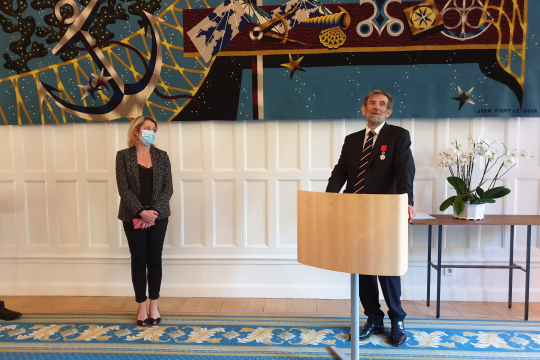Thomas Sterner received the award Knight (Chevalier) of the Legion of Honour as a recognition for his work and commitment to the environment. The Legion of Honour is the highest French order of merit, both military and civil, established by Napoleon Bonaparte and retained by all later French governments.
Thomas Sterner is a professor in Environmental Economics at the School of Business Economics and Law, University of Gothenburg, and an internationally acknowledged expert on climate policy instruments. Being one of the co-founders of Environment for Development he is also a well-known member of this network.
“Outstanding work”
France benefits from Thomas Sterner’s work in several ways. He is a member of the committee for the state’s green bonds, aimed at financing environmental projects, currently the biggest of its kind in the world. He is a member of the scientific board of AFD (the French equivalent to the Swedish Sida), and President of the Conseil Scientifique de la Chaire Economie du Climat, University Paris Dauphine. In 2015-16 he was elected to a chair of sustainable development at the prestigious Collège the France.
The motivation for his appointment to Chevalier is:
By this award, France wants to honor your outstanding work as a researcher, your commitment to the environment, and your undisputably important role in the international debate.
Discussed policies with the minister
“I am really happy to get this recognition for my work”, says Thomas Sterner.
“France has definitely acknowledged the importance of a transition to a fossil-free community and the role Environmental Economics plays in solving this great challenge”.
The award ceremony was held at the French Embassy in Stockholm by the French Environment Minister, Barbara Pompili on the 4th of June.
”It was a great ceremony and a fine opportunity to talk to the Environment Minister Barbara Pompili. We discussed environmental issues in general and climate policies in particular, financial policies such as the green bonds but also fiscal policies such as carbon taxes and public education which is fundamental to pave the way for other policies.”
By: Petra Hansson

